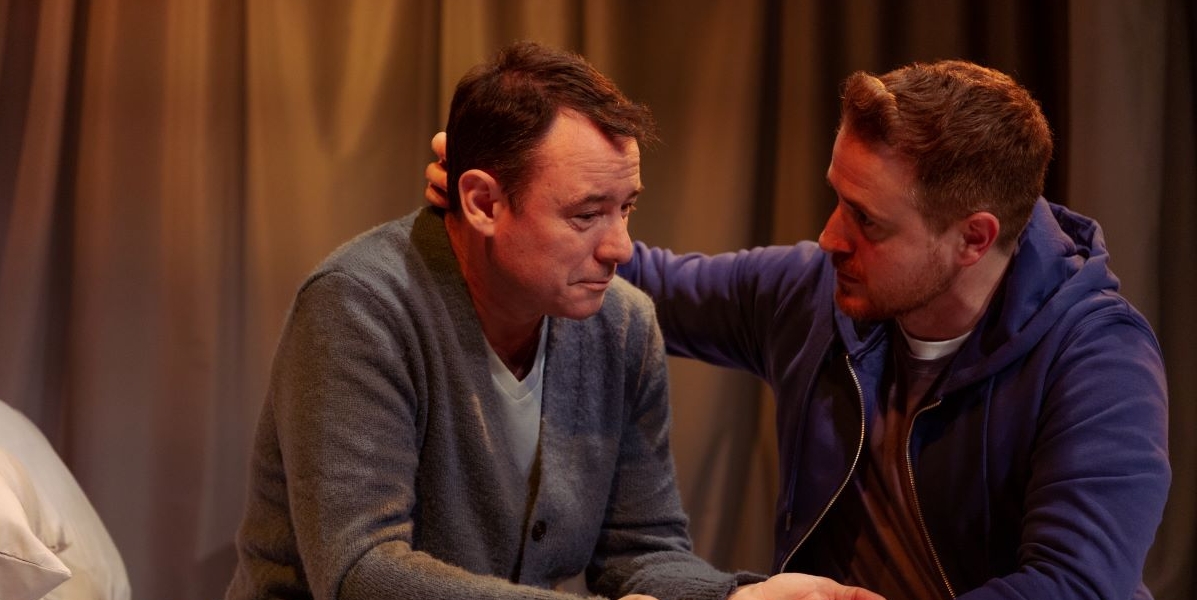This gentle, affecting and quietly dignified play is a meditation on the most personal of experiences. Writer Simon Perrott lost his partner, Steve, in 2007 and much of the material deployed here draws on his experience of grief, or as much the deflection and denial of grief in the decade or so that has followed. The play is a two-hander occasioned by the survivor, Jamie, discovering a detailed diary left by his partner which then opens the floodgate of memory.
This takes two forms – firstly, the reappearance of Teddy, the partner, as an interlocutor, trying to push Jamie to move on with life, while Jamie claims he has already. This is then intercut with re-enactment of crucial events leading up to Teddy’s death from cancer. The switch is signalled by a lighting change in each case, and often by a shift in the position of the simple revolve set, where a double bed holds centre stage.
This could easily be a remorselessly bleak formula in the wrong hands, but Perrott ensures that he scatters sufficient wry and sometimes black humour across the dialogue to prevent that happening. The pain of separation, moments of mutual anger and dispute, and the raw fear of death and severance are properly and plausibly registered by the two actors. There is a convincing physical chemistry between them which speaks to a stable and entrenched relationship capable of great stoical acceptance but tested to the limit by unendurable circumstances.
For anyone who has been a carer to the terminally ill the psychological observation on offer here is acute and at times wincingly painful. How anger and despair can be brought to the surface – on both sides – by the most trivial of pretexts, which represents the final straw and trigger to both sides. How grief is bottled up or buried to avoid hurting or involving family and friends. How guilt, even of the most unreasonable kind, is used as a self-scourge by the survivor. All these moods and states of mind – and many more – are well rendered here.
That said, the play is a shade too long, and could lose ten minutes or so to advantage, as a few themes come around a little too often. Also, at points the delivery could be more incisive, rapid-fire, and intercut. While the Pleasance is an intimate venue, decisive vocal projection is still needed to get the points across with their full value. The pace flags at intervals when the bed itself becomes something of an obstacle rather than a focal point and the revolve turns a few too many times.
Clearly a lot of care has gone into both rewrites and production – there is a delicate balance here between mourning and loss on the one hand and a contrasting celebration of the lasting memories of joy that a relationship leaves. For anyone familiar with the way in which surviving partners can get ‘stuck’ in a mildly depressed state that is a matter of both coping and failing to move on, this play is a valuable practical resource. But is it a wholly heretical thought that it might work even more powerfully as a radio play rather than as a stage work – where the sound of silence counts for more, and the scope for self-reflexive interaction between listener and subject is all the more intense…?

